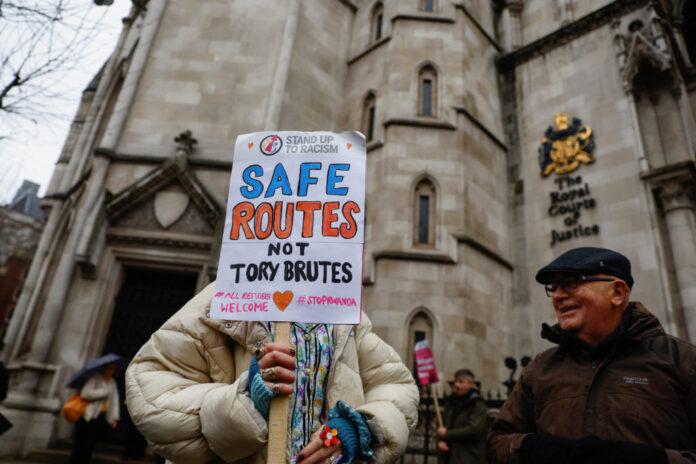
UK plans mass migrant deportations, causing panic
The Labour-led government of the United Kingdom has pledged to continue its strict approach toward irregular migration, emphasizing the need to ensure that immigration rules are respected and enforced.
In a recent interview on GBN and on the Home Office website, Home Secretary Yvette Cooper revealed that 19,000 irregular migrants, inherited from the previous Conservative government, have been deported since Labour assumed office. She stated, “To restore public confidence in the immigration system, we must show that the rules are respected and enforced. As part of the government’s plan for change, we’ve allocated significant resources to immigration enforcement and returns. This ensures that those without the right to remain, especially those who have committed crimes, are swiftly removed.”
Prime Minister Keir Starmer, in a tweet on Monday, added, “Too many people are able to come to the UK and work. We are putting an end to it.”
Looking ahead, the Home Secretary mentioned that the government plans to introduce new counter-terrorism-style powers to target people-smuggling gangs. This will be part of a comprehensive new set of measures to protect the UK’s border security, which has already undergone its second reading in the House of Commons.
The Home Office confirmed that nearly 19,000 failed asylum seekers, foreign criminals, and other immigration offenders have been returned to countries across Africa, Asia, Europe, and South America since the general election. These efforts represent the highest return rates in the UK since 2018, and include four of the largest charter flights in UK history, with over 850 people deported.
READ ALSO: UK appoints British-Nigerian as trade envoy to Nigeria
To further boost immigration enforcement, 1,000 additional staff have been redeployed, signaling that those arriving illegally will be quickly removed. Between July 5, 2024, and January 31, 2025, forced returns have increased by 24%, foreign national offenders’ removals rose by 21%, and illegal working raids grew by 38%, compared to the same period the previous year.
The Home Office also revealed for the first time images of its crackdown on businesses like nail bars, car washes, and restaurants, where thousands of illegal workers were arrested. In January alone, immigration enforcement teams raided 828 premises, marking a 48% rise from the previous year, with arrests increasing by 73%. Employers found to be employing illegal workers face fines up to £60,000 per person.
The Home Office stressed that many migrants are lured into illegal work by false promises, leading some to risk dangerous journeys to the UK via small boats.
In the coming months, the government plans to expand its efforts by introducing further counter-terrorism-style powers, aimed at tackling organized crime. The Border Security, Asylum, and Immigration Bill will provide law enforcement with the ability to seize mobile phones from individuals who arrive illegally, even before they are arrested.
Additionally, the government will host a Border Security Summit in London on March 31 and April 1, which will involve representatives from over 40 countries and international institutions, including the European Union. The summit will focus on how best to combat criminal networks involved in migrant smuggling and immigration crime.
However, some analysts believe that the Labour-led government’s actions are aimed at demonstrating their commitment to tough immigration policies following their electoral promises. They also predict that human rights organizations may soon criticize the government, particularly regarding the lack of transparency about the destinations of deported individuals.
Meanwhile, Conservative leader Kemi Badenoch has expressed plans to push for changes to the immigration bill, advocating for a 10-year waiting period for foreign workers before qualifying for indefinite leave to remain, which would allow them to stay permanently without full citizenship rights. Under current rules, workers and refugees can apply for indefinite leave to remain after five years, allowing them to claim benefits, though they must wait another year before applying for citizenship.
Some Nigerian migrants in the UK, particularly those who arrived on student or skilled work visas, have faced migration-related challenges. Immigration experts note that some Nigerian students delay their application for a postgraduate study visa, only to receive notifications from the Home Office informing them that they have limited time to stay. Similarly, some individuals arriving on sponsored visas without secured employment have had their employer’s sponsorship revoked, leaving them vulnerable to eviction.
However, experts indicate that some individuals have managed to overcome these hurdles with legal assistance or by switching to alternative sponsors.
Follow the Neptune Prime channel on WhatsApp:
Do you have breaking news, interview request, opinion, suggestion, or want your event covered? Email us at neptuneprime2233@gmail.com




